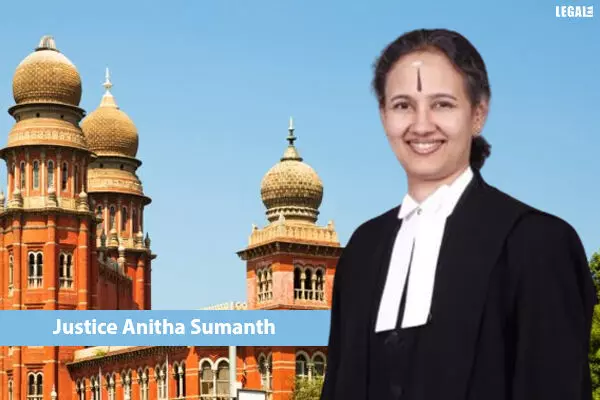- Home
- News
- Articles+
- Aerospace
- Artificial Intelligence
- Agriculture
- Alternate Dispute Resolution
- Arbitration & Mediation
- Banking and Finance
- Bankruptcy
- Book Review
- Bribery & Corruption
- Commercial Litigation
- Competition Law
- Conference Reports
- Consumer Products
- Contract
- Corporate Governance
- Corporate Law
- Covid-19
- Cryptocurrency
- Cybersecurity
- Data Protection
- Defence
- Digital Economy
- E-commerce
- Employment Law
- Energy and Natural Resources
- Entertainment and Sports Law
- Environmental Law
- Environmental, Social, and Governance
- Foreign Direct Investment
- Food and Beverage
- Gaming
- Health Care
- IBC Diaries
- In Focus
- Inclusion & Diversity
- Insurance Law
- Intellectual Property
- International Law
- IP & Tech Era
- Know the Law
- Labour Laws
- Law & Policy and Regulation
- Litigation
- Litigation Funding
- Manufacturing
- Mergers & Acquisitions
- NFTs
- Privacy
- Private Equity
- Project Finance
- Real Estate
- Risk and Compliance
- Student Corner
- Take On Board
- Tax
- Technology Media and Telecom
- Tributes
- Viewpoint
- Zoom In
- Law Firms
- In-House
- Rankings
- E-Magazine
- Legal Era TV
- Events
- Middle East
- Africa
- News
- Articles
- Aerospace
- Artificial Intelligence
- Agriculture
- Alternate Dispute Resolution
- Arbitration & Mediation
- Banking and Finance
- Bankruptcy
- Book Review
- Bribery & Corruption
- Commercial Litigation
- Competition Law
- Conference Reports
- Consumer Products
- Contract
- Corporate Governance
- Corporate Law
- Covid-19
- Cryptocurrency
- Cybersecurity
- Data Protection
- Defence
- Digital Economy
- E-commerce
- Employment Law
- Energy and Natural Resources
- Entertainment and Sports Law
- Environmental Law
- Environmental, Social, and Governance
- Foreign Direct Investment
- Food and Beverage
- Gaming
- Health Care
- IBC Diaries
- In Focus
- Inclusion & Diversity
- Insurance Law
- Intellectual Property
- International Law
- IP & Tech Era
- Know the Law
- Labour Laws
- Law & Policy and Regulation
- Litigation
- Litigation Funding
- Manufacturing
- Mergers & Acquisitions
- NFTs
- Privacy
- Private Equity
- Project Finance
- Real Estate
- Risk and Compliance
- Student Corner
- Take On Board
- Tax
- Technology Media and Telecom
- Tributes
- Viewpoint
- Zoom In
- Law Firms
- In-House
- Rankings
- E-Magazine
- Legal Era TV
- Events
- Middle East
- Africa
Interest on late GST remittance levied even if credit in electronic cash or credit ledger available: Madras High Court

Interest on late GST remittance levied even if credit in electronic cash or credit ledger available: Madras High Court
The Madras High Court in its recent judgement held that interest on late GST remittances is levied even if credit in electronic cash or credit ledgers is available.
The single bench of Justice Dr. Anita Sumanth has observed that unless an assessee actually files a return and debits the respective registers, the authorities cannot be expected to assume that available credits will be set-off against tax liability.
In the present case the petitioner/assessee did not file monthly returns for the months of August to October 2017, on the premise that the proper ascertainment of tax liability for the months would be dependent upon the adjudication of the petition. The petitioner did not file returns for the later periods, as a measure of containing the cascading effect of the error that had transpired in the return for July 2017.
The petitioner argued that it had sufficient ITC credit in both the electronic cash ledger (ECR) and the electronic credit register (ECrC). Thus, there had been no loss caused to the revenue and hence no justification to levy interest since the interest is only compensatory in nature.
As per the amendments to Section 50 of the CGST Act, the respondent has recomputed the interest payable, reducing it from Rs. 5,00,00,000 to an amount of Rs. 1,19,00,000. Thus, credit to the extent of cash payments effected by the petitioner has been granted to the petitioner. The assessee submitted that the same logic that has merited acceptance by GST authorities in relation to the cash balance should apply in the context of the credit balance as well.
The department contended that prior to availing credit cannot be taken to construe the payment.
The court noted that a distinction is sought to be made between cash credits and credits available in the ECR and ECrR. While payments in cash denote the actual availability of cash to the credit of the assessee, deposits standing to the credit of an assessee do not necessarily, and in all circumstances, imply that the resources to back credit up are within reach of the Department.
The court observed that the petitioner has not actually filed the returns and effected a debit to the ECR and EcrR to the extent of the tax payable. Thus, credit cannot be equated with cash remittances.
The Court said that:
"There are any number of situations where credit may be found to have been availed erroneously or on a mistaken interpretation of the law. Thus, it would be risky, from the viewpoint of the revenue, to state as a general proposition that the mere availability of electronic credit should be assumed to be utilisation that would insulate the petitioner from the levy of interest."



